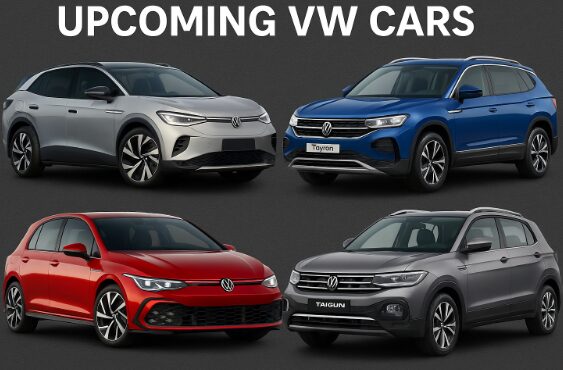In a market as fluid as India’s, automakers are always weighing global ambition against local conditions — and no one has been a better poster child for this adaptation plan than Volkswagen. Having once been willing to roll the dice on going EV-only by 2028, the German marque has since slammed on the brakes on that project in favour of a more balanced strategy that combines premium internal combustion cars with phased electrification.
As the Indian EV segment has matured more slowly than anticipated and ICE models continue to hold gigantic demand, Volkswagen has gone back to its product masterplan. The brand is now preparing to update its core ICE range, introduce new premium SUVs, and sell global EVs through the CBU route. At the same time, it’s maintaining its focus squarely in the premium segment, avoiding mass-market offerings and volume-hunting products.
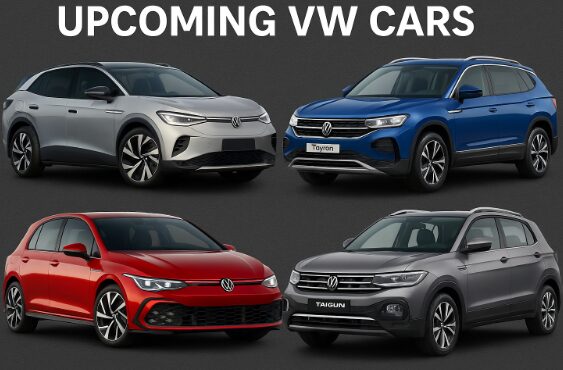
Here’s a comprehensive overview of the new Volkswagen vehicles in India, what to anticipate, and what’s surprisingly not planned.
1. Volkswagen Golf GTI – Launch: May 26, 2025
Marking its return to the enthusiast segment, Volkswagen India will launch the Golf GTI on May 26, 2025, making it the brand’s second GTI model after the Polo GTI.
Key specs and features:
- Powered by a 2.0-litre TSI turbo-petrol engine, producing 265 PS and 370 Nm
- Mated to a 7-speed DSG gearbox, delivering hot hatch thrills with everyday usability
- Design highlights: twin-pod LED headlights, signature X-shaped LED fog lamps, 18-inch alloys, illuminated VW logo
- Cabin: all-black theme, grey-black sporty seat upholstery, sport seats up front
- Technology: 12.9-inch touchscreen, 10.25-inch digital driver’s display, panoramic sunroof, 7-speaker sound system
- Safety suite: 7 airbags, ADAS, front & rear parking sensors
Expected to be priced at around Rs 52 lakh (ex-showroom), the Golf GTI will be imported as a CBU and cater to a niche enthusiast base, similar to the Ioniq 5 and Mini Cooper S.
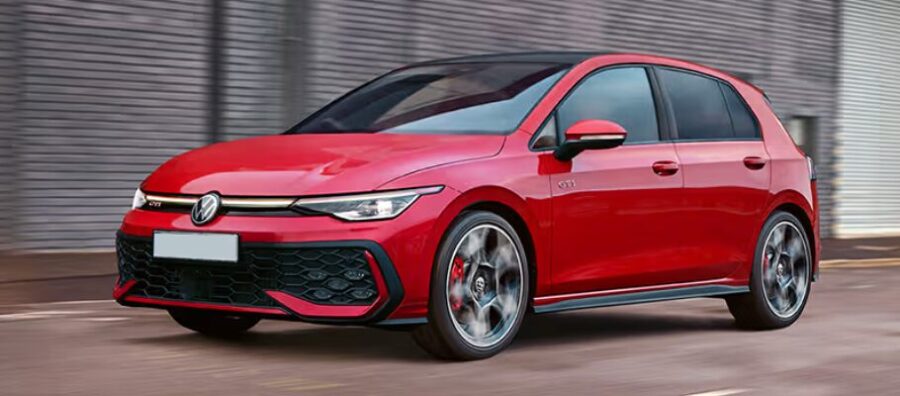
2. Facelifted Volkswagen Virtus and Taigun – Launch Expected: Early 2026
The Taigun SUV and Virtus sedan have been the stars of VW’s India 2.0 game since their launch in 2021 and 2022, respectively. These models, developed on the India-exclusive MQB-A0-IN platform, have been praised for their robust build, turbocharged power, and engaging-to-drive personality.
To remain current against increased competition from the likes of the Hyundai Verna, Kia Seltos, and Honda Elevate, Hyundai Creta and even their own counterparts Skoda Slavia & Kushaq (who are also expected to get facelifts), etc Volkswagen is set to introduce facelifted variants of both by early 2026.
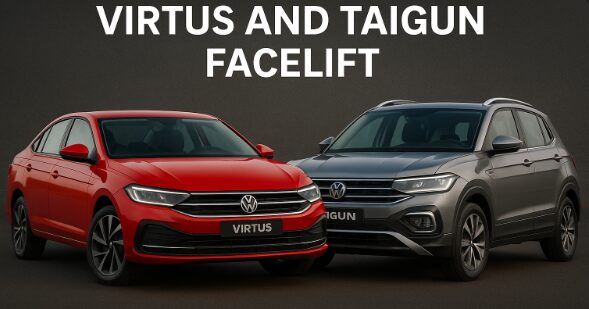
What to expect:
- Redesigned outer sheet metal, particularly at the front.
- Styling refinements influenced by VW’s global design language.
- ADAS (Advanced Driver Assistance Systems) inclusion.
- Enhanced infotainment and interior trim as well some premium soft material usage.
- 360° camera.
- Full-LED headlights and tail lights.
- Electric parking brake,
- All-disk brakes, and much more
No changes under the hood are anticipated, as both 1.0-litre and 1.5-litre TSI turbo-petrol engines are already BS6 Phase 2 compliant and emissions-legal until 2027. The upgrades aim to make the models current until the end of the decade, with no short-term EV or hybrid successors on the anvil.
3. Volkswagen Tayron – Launch Expected: Early 2026
In the high-end SUV market, Volkswagen will launch a new flagship model — the Volkswagen Tayron, which is likely to be launched in India by early 2026.
The reason the Tayron stands out is that it will be a three-row, long-wheelbase variant of the recently launched Tiguan, which will target competitors such as the Skoda Kodiaq, Hyundai Tucson, and Jeep Meridian. Based on the MQB platform, the Tayron will marry German engineering and family-oriented pragmatism.
Hypothetical highlights:
- Spacious cabin with 7-seat layout
- 2.0-litre TSI petrol engine with 7-speed DSG and 4Motion AWD
- Top level of safety, comfort, and tech
- Refined European design and build quality
It will be VW’s re-entry into the big SUV segment, taking over from the discontinued Tiguan Allspace, but much more localized and contemporary.
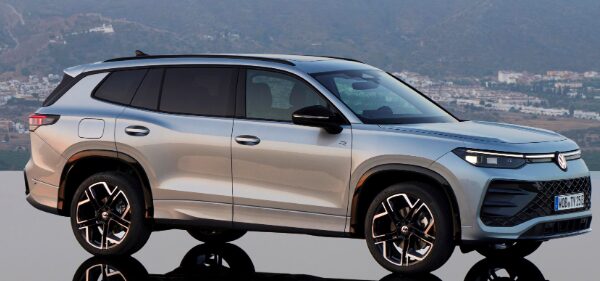
4. Volkswagen ID.4 GTX – EV Debut Expected: Late 2024 to Early 2025
Volkswagen’s initial electric car in India will be the ID.4 GTX, which is anticipated to come as a CBU (completely brought unit) towards the end of 2024 or early 2025. Although the global strategy for the ID family is aggressive, the Indian introduction will begin with this high-end electric SUV to feel out waters.
Major features:
- Dual electric motors capable of AWD
- Range of up to 500 km (WLTP)
- Fast charging support and sleek dashboard interface
- Minimalist, uncluttered interior design with premium materials
ID.4 will be competing in the premium EV segment, head-to-head against products such as the Hyundai Ioniq 5, Kia EV6, and BYD Seal U. Domestic assembly may be planned in the future if import reaction is keen and EV charging infrastructure ramps up.
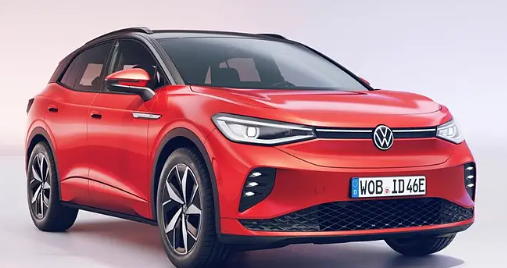
5. Volkswagen T-Roc (New Gen with Hybrid Option) – Under Evaluation
Volkswagen is actively evaluating the return of the T-Roc in its second-generation avatar, this time potentially as a Hybrid Electric Vehicle (HEV). The SUV, which once saw brief success in India as a CBU, could return under similar limited-volume strategy.
As per recent international reports:
- The next-gen T-Roc will debut at the Munich Motor Show in September 2025
- Will feature VW’s new full-hybrid powertrain (not mild-hybrid or plug-in)
- Hybrid system includes a 1.5L turbo-petrol engine + electric motor, offering 201–268 BHP and up to 400 Nm torque
- Electric-only drive mode for short distances
- Expected to ride on the MQB Evo platform, shared with Golf, Tayron, Octavia, and others
This move marks Volkswagen’s first full-hybrid drivetrain globally, and if imported to India, it could signal the beginning of VW’s hybrid journey in our market — especially with ICE demand still dominating and EV infrastructure evolving.
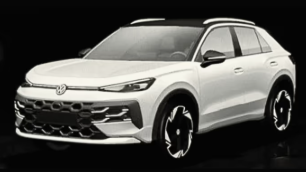
What’s Not Coming to India
❌ Volkswagen Polo
Even with healthy brand equity and a devoted fan base, the Polo is not coming back to India. The sixth-gen Polo that is exported overseas is too costly to localize and would be unable to cope with Indian pricing standards. Volkswagen has categorically made it clear that it is no longer targeting the mass-market hatchback segment.
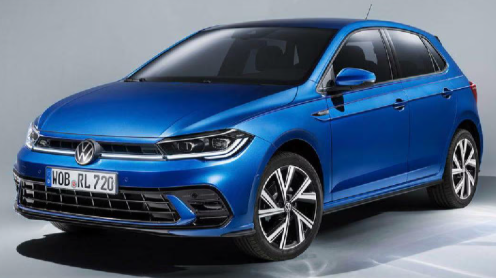
❌ Volkswagen Jetta
The world-over re-engineered Jetta has been dropped for right-hand-drive markets, which automatically puts it out of contention for India. That virtually eliminates the possibility of the Jetta nameplate making a comeback unless subsequent generations are engineered with RHD capability — which is not on the horizon anytime soon.
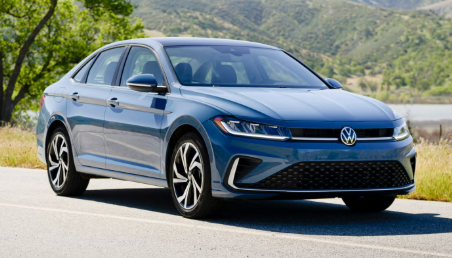
❌ Volkswagen Passat
The Passat has now become station wagon-only (estate) in its current generation. Sedan body form is only sold in China as the Passat Pro, which was specifically created for that country. With no RHD sedan on production, India will not be getting the Passat, even as a CBU.
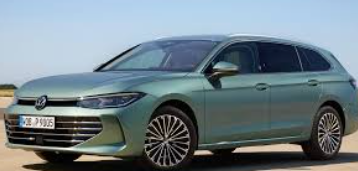
❌ Volkswagen Tera (Brazil)
The Tera, a sub-4-metre SUV based on the forthcoming Skoda Kylaq and sold in Brazil, won’t be coming to India. Volkswagen has indicated it wishes to avoid the sub-4-metre compact SUV segment and retain its premium-only positioning within the Indian market.
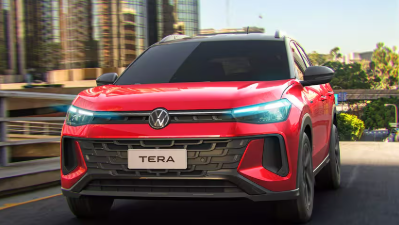
Conclusion: Leaner, Smarter, Premium-Only Volkswagen India
Volkswagen’s India future lineup tells a plain story: more with less. Rather than racing for volumes in the subcompact segment or deluging the market with variants, VW is going for a targeted premium strategy, addressing informed urban consumers who prioritize performance, quality, and brand value.
With the face-lifted Taigun and Virtus, the new Tayron SUV, the ID.4 electric flagship, and potential comeback of the T-Roc, Volkswagen is constructing a lean but aspirational lineup that encapsulates the brand’s world identity and India-specific considerations.
The Polo, Jetta, Passat, and Tera might be on hold — but what’s on the horizon demonstrates VW is changing, not pulling back. And for shoppers who prefer German engineering in its most untainted state, Volkswagen’s best is on the horizon.
Also read: Volkswagen Golf GTI: Sold Out Pre-Launch – And Here’s Why!

